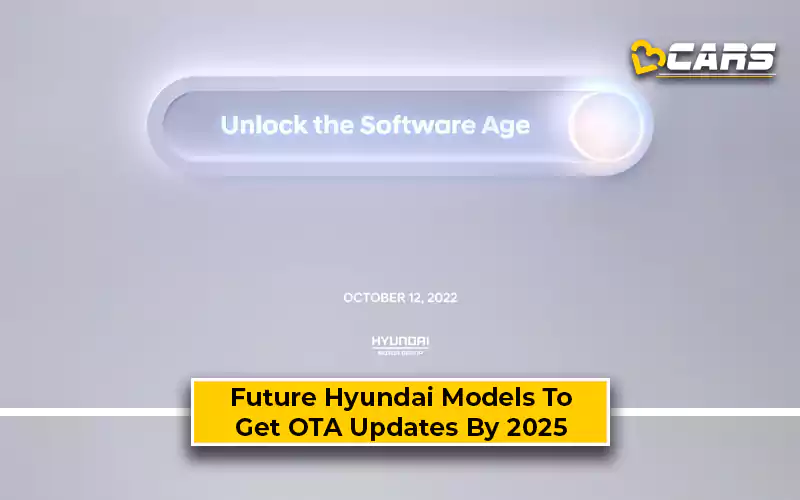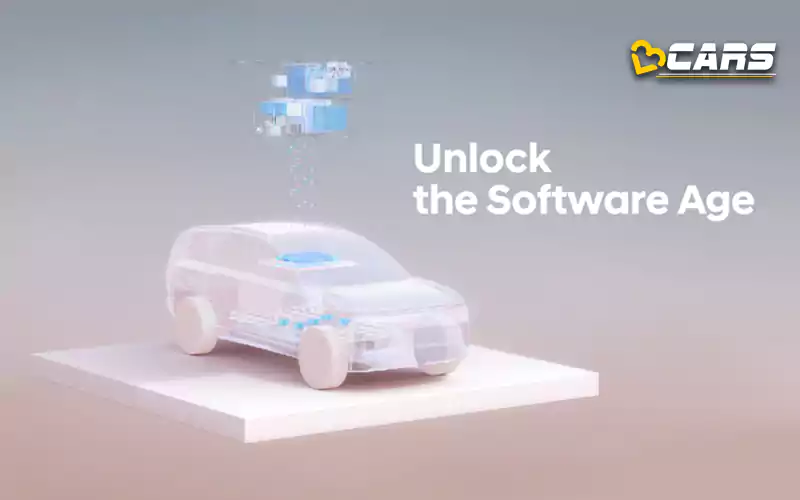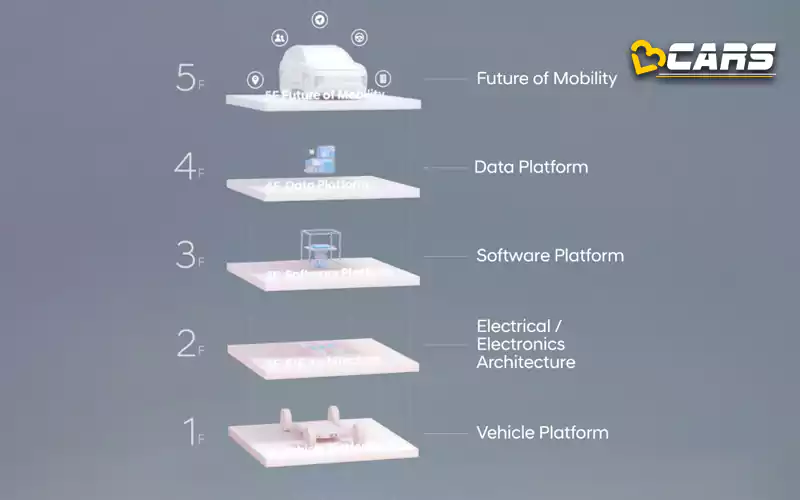Future Hyundai Models To Receive Performance, Safety Features Via OTA Updates | V3Cars
Hyundai recently hosted their ‘Unlock the Software Age’ event to shed light on their future plans to make their vehicles more connected and advanced. All future Hyundai models, starting 2025, will come with Over-the-Air (OTA) update compliance around the globe. All new models from 2023 onwards will be equipped to receive OTA updates.

OTA Updates To Boost Performance And Offer New Features
While all future models starting 2023 will be equipped to receive OTA updates, Hyundai will evolve their entire model range, including Kia and Genesis, to software defined vehicles (SDV) by 2025. It is worth noting that SDVs will include both electric and internal-combustion engine (ICE) vehicles. Users will be able to update their vehicles without visiting a dealership and enhance the performance and functionality of their vehicles.
Note: Check your Car EMI with our - Car Loan EMI Calculator
Hyundai Connected Car Operating System (CCOS)
Hyundai have revealed Connected Car Operating System (CCOS) for their future models to offer personalised services and faster data processing. To make this happen, Hyundai have joined hands with NVIDIA, which is a leading AI computing company. NVIDIA will help develop advanced semiconductor chips for faster processing and optimisation. Under this program, Hyundai will also work on improving the customer experience by forming partnerships with industry sectors like logistics, accommodation, leisure, and entertainment.
Next-Gen EV Platforms To Accelerate SDVs
At the event, Hyundai also announced their new EV platforms — eM and eS. Multiple vehicles underpinned by eM and eS platforms will start rolling out from 2025 onwards. The eM platform will underpin EVs across all segments and offer a 50% improvement in driving range. Furthermore, the eM platform will also feature Level-3 advanced driving assistance systems (ADAS). The eS platform, on the other hand, will service B2B sedans with purpose built vehicles (PBVs).

Note: Check your car’s fuel cost with Fuel Cost Calculator in India
Hyundai also discussed standardisation and modularisation of key EV components. By standardising the batteries and electric motors, for example, which currently vary across each EV model, the group will flexibly apply common components to each vehicle, thus efficiently expanding its lineup and also boosting profit margins.
Also Read: Mercedes EQS 580 Bags 300+ Confirmed Orders



0 Comments
Hyundai Cars in India
Creta
₹10.79 - ₹20.20 lakh*
*Ex-showroom priceVenue
₹7.90 - ₹15.69 lakh*
*Ex-showroom priceVenue N
Line
₹10.55 - ₹15.48 lakh*
*Ex-showroom priceCreta EV
₹18.02 - ₹24.70 lakh*
*Ex-showroom priceAlcazar
₹14.50 - ₹21.21 lakh*
*Ex-showroom priceCreta N
Line
₹16.35 - ₹20.10 lakh*
*Ex-showroom priceCreta-copy
₹10.79 - ₹20.20 lakh*
*Ex-showroom priceExter
₹5.64 - ₹9.61 lakh*
*Ex-showroom priceVerna
₹10.80 - ₹17.13 lakh*
*Ex-showroom priceAura
₹5.98 - ₹8.54 lakh*
*Ex-showroom priceGrand i10
Nios
₹5.55 - ₹7.92 lakh*
*Ex-showroom priceIoniq 5
₹46.30 lakh*
*Ex-showroom pricei20 N
Line
₹9.22 - ₹11.67 lakh*
*Ex-showroom pricei20
₹6.87 - ₹10.57 lakh*
*Ex-showroom priceUpcoming Hyundai Cars
Next-Gen Venue
N Line
₹11.40 - ₹13.30 lakh*
*Expected PriceExpected Launch Nov 2025
Next-Gen Venue
₹8.19 - ₹13.20 lakh*
*Expected PriceExpected Launch Nov 2025
Verna Facelift
₹11.10 - ₹17.99 lakh*
*Expected PriceExpected Launch Mar 2026
Exter Facelift
₹6.19 - ₹10.89 lakh*
*Expected PriceExpected Launch Jul 2026
Exter XRT
₹8.99 - ₹11.30 lakh*
*Expected PriceExpected Launch Dec 2026
Creta 3rd-Gen
₹11.49 - ₹21.50 lakh*
*Expected PriceExpected Launch Jan 2027
Next-Gen Grand
i10 Nios
₹6.30 - ₹8.99 lakh*
*Expected PriceExpected Launch Apr 2027
Next-Gen Aura
₹6.80 - ₹9.50 lakh*
*Expected PriceExpected Launch May 2027
Stargazer
-
*Expected PriceExpected Launch Jun 2027
Verna N
Line
-
*Expected PriceExpected Launch Jul 2027
Sonata Facelift
-
*Expected PriceExpected Launch Dec 2027
Ioniq 6
2026
₹65.00 - ₹80.00 lakh*
*Expected PriceExpected Launch Feb 2028
Kona EV
Facelift
-
*Expected PriceExpected Launch Feb 2028
Staria
₹45.00 - ₹55.00 lakh*
*Expected PriceExpected Launch Oct 2028
Venue XRT
₹12.49 lakh*
*Expected PriceExpected Launch Nov 2028
Next Gen
Elantra
-
*Expected PriceExpected Launch Dec 2028
Palisade
-
*Expected PriceExpected Launch Jan 2029
Venue Facelift
-
*Expected PriceExpected Launch Mar 2029
Ioniq 5
Facelift
-
*Expected PriceExpected Launch Apr 2029
Santa FE
-
*Expected PriceExpected Launch Apr 2029
Ioniq 9
₹80.00 - ₹90.00 lakh*
*Expected PriceExpected Launch Jun 2029
Nexo
-
*Expected PriceExpected Launch Feb 2030
Latest Hyundai Cars Videos
Hyundai Venue vs Maruti Arena Brezza Sub Rs. 10 Lakh Battle | Which Car Is More Value For Money?
Hyundai Venue vs Tata Nexon Sub Rs. 11 Lakh Battle | Which Car Is More Value For Money?
Hyundai Venue vs Tata Nexon Sub Rs. 12 Lakh Battle | Which Car Is More Value For Money?
Hyundai Venue vs Tata Nexon Sub Rs. 9 Lakh Battle | Which Car Is More Value For Money?
Hyundai Verna 1.5 Turbo DCT Fuel Efficiency Test | Real-World Mileage Review
Hyundai Venue vs Tata Nexon | Sub Rs. 8 Lakh Battle | Which Car Is More Value For Money?
New Hyundai Venue Variants Explained | HX2, HX4, HX5, HX6, HX6T, HX8, HX10, N6, N10
Tata Punch vs Hyundai Exter Sub Rs. 10 Lakh Battle | Which Car Is More Value For Money?
Hyundai Exter vs Tata Punch | Sub Rs. 7 Lakh Battle | Which Car Is More Value For Money?
Kia Seltos vs Hyundai Creta | Sub Rs 15 Lakh Battle | Which Car Is More Value For Money?